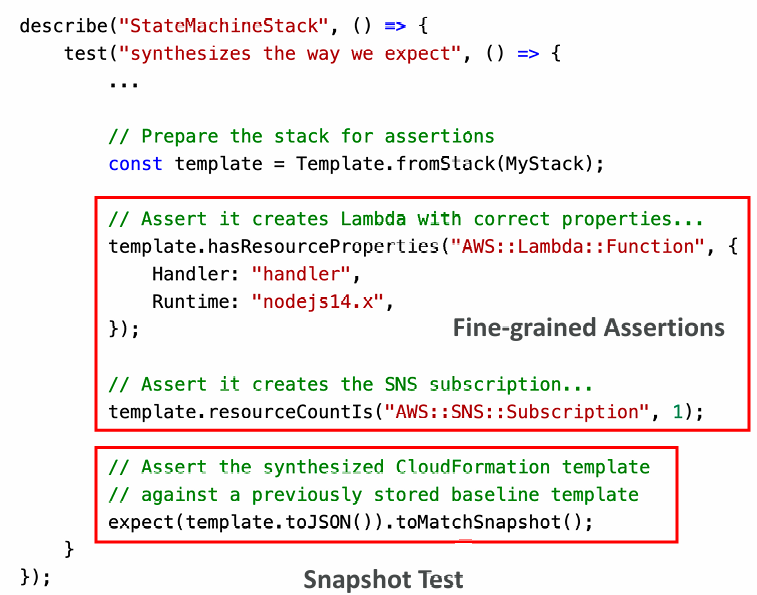Cloud Development Kit
- Define your cloud infrastructure using a familiar language:
- JavaScript/TypeScript, Python, Java, and .NET
- Contains high level components called constructs
- The code is “compiled” into a CloudFormation template (JSON/YAML)
- You can therefore deploy infrastructure and application runtime code together
- Great for Lambda functions
- Great for Docker containers in ECS / EKS
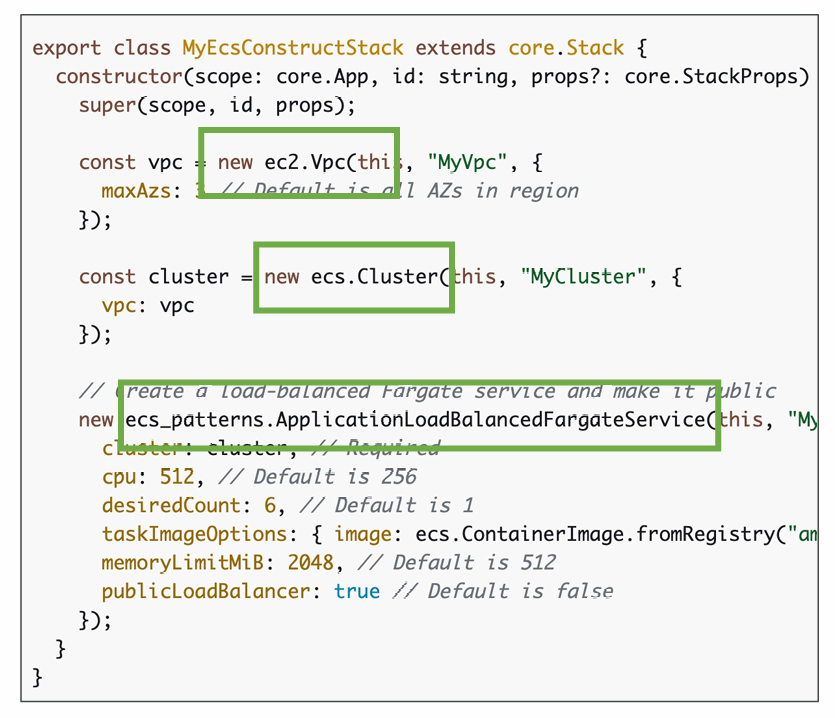
CDK in a diagram
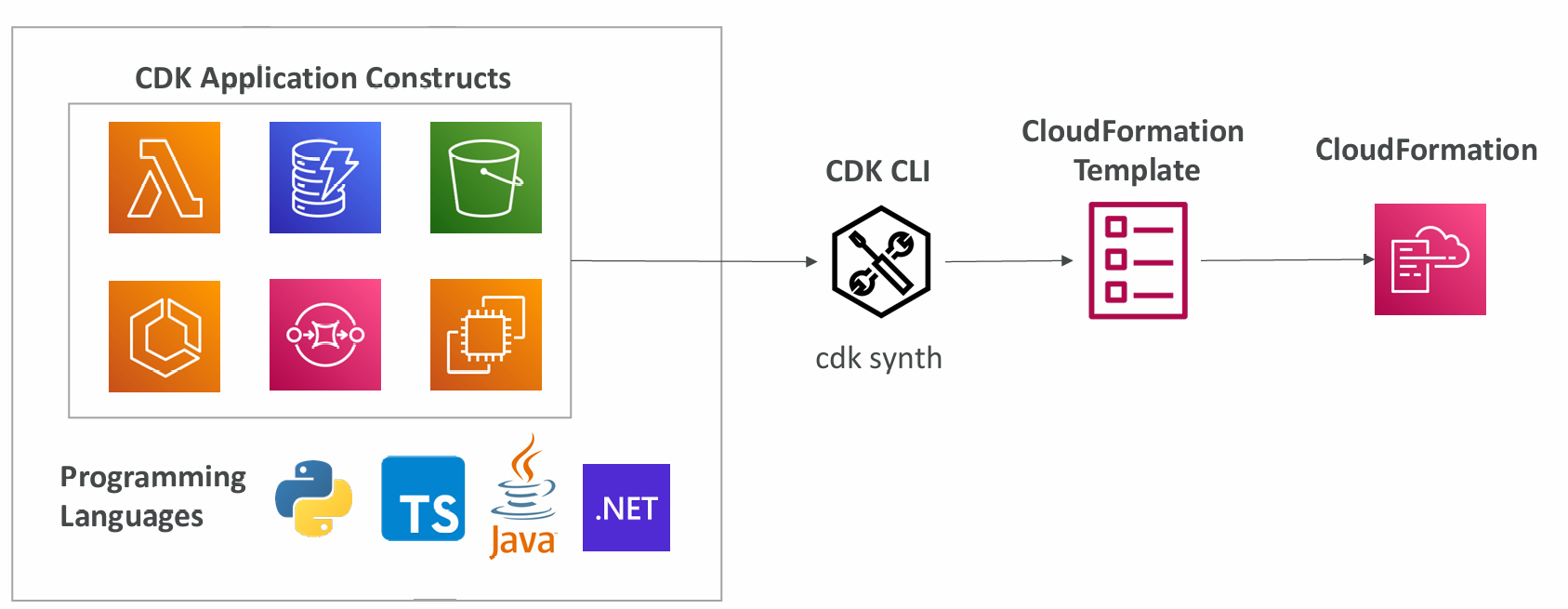
CDK vs SAM
- SAM:
- Serverless focused
- Write your template declaratively in JSON or YAML
- Great for quickly getting started with Lambda
- Leverages CloudFormation
- CDK:
- All AWS services
- Write infra in a programming language JavaScript/TypeScript, Python, Java, and .NET
- Leverages CloudFormation
CDK + SAM
- You can use SAM CLI to locally test your CDK apps
- You must first run cdk synth

CDK Constructs
- CDK Construct is a component that encapsulates everything CDK needs to create the final CloudFormation stack
- Can represent a single AWS resource (e.g., S3 bucket) or multiple related resources (e.g., worker queue with compute)
- AWS Construct Library
- A collection of Constructs included in AWS CDK which contains Constructs for every AWS resource
- Contains 3 different levels of Constructs available (L1, L2, L3)
- Construct Hub – contains additional Constructs from AWS, 3rd parties, and open-source CDK community
Layer 1 Constructs (L1)
- Can be called CFN Resources which represents all resources directly available in CloudFormation
- Constructs are periodically generated from CloudFormation Resource Specification
- Construct names start with Cfn (e.g., CfnBucket)
- You must explicitly configure all resource proper ties
const bucket = new s3.CfnBucket(this, "MyBucket", { bucketName: "MyBucket" });
Layer 2 Constructs (L2)
- Represents AWS resources but with a higher level (intent-based API)
- Similar functionality as L1 but with convenient defaults and boilerplate
- You don’t need to know all the details about the resource proper ties
- Provide methods that make it simpler to work with the resource (e.g., bucket.addLifeCycleRule())
const s3 = require("aws-cdk-lib/aws-s3");
const bucket = new s3.Bucket(this, "MyBucket", {
versioned: true,
encryption: s3.BucketEncryption.KMS,
});
// Returns the HTTPS URL of an S3 object
const objectUrl = bucket.urlForObject("MyBucket/MyObject");
Layer 3 Constructs (L3)
- Can be called Patterns, which represents multiple related resources
- Helps you complete common tasks in AWS
- Examples:
- aws-apigateway.LambdaRestApi represents an API Gateway backed by a Lambda function
- aws-ecs-patterns.ApplicationLoadBalancerFargateService which represents an architecture that includes a Fargate cluster with Application Load Balancer
const api = new apigateway.LambdaRestApi(this, "myapi", {
handler: backend,
proxy: false,
});
const items = api.root.addResource("items");
items.addMethod("GET"); // GET /items
items.addMethod("POST"); // POST /items
const item = items.addResource("{item}");
item.addMethod("GET"); // GET /items/{item}
item.addMethod("DELETE", new apigateway.HttpIntegration("http://amazon.com"));
Important Commands to know
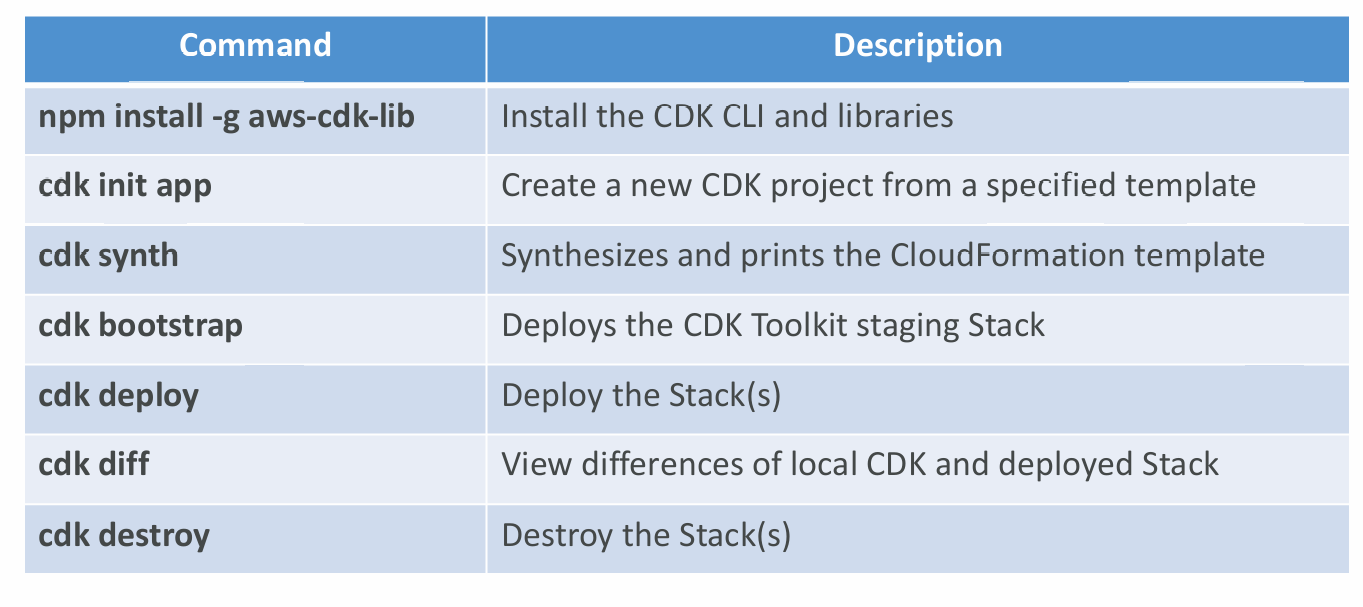
Bootstrapping
- The process of provisioning resources for CDK before you can deploy CDK apps into an AWSenvironment
- AWS Environment = account & region
- CloudFormation Stack called CDKToolkit is created and contains:
- S3 Bucket – to store files
- IAM Roles – to grant permissions to perform deployments
- You must run the following command for each new environment:
cdk bootstrap aws://<aws_account>/<aws_region>
- Otherwise, you will get an error “Policy contains a statement with one or more invalid principal”
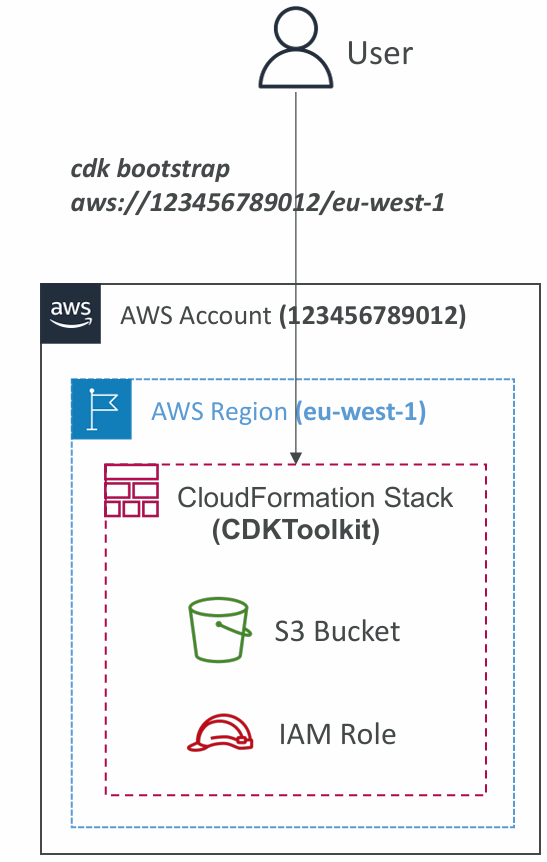
Testing
- To test CDK apps, use CDK Assertions Module combined with popular test frameworks such as Jest (JavaScript) or Pytest (Python)
- Verify we have specific resources, rules, conditions, parameters…
- Two types of tests:
- Fine-grained Assertions (common) – test specific aspects of the CloudFormation template (e.g., check if a resource has this property with this value)
- Snapshot Tests – test the synthesized CloudFormation template against a previously stored baseline template
- To import a template
- Template.fromStack(MyStack) : stack built in CDK
- Template.fromString(mystring) : stack build outside CDK
